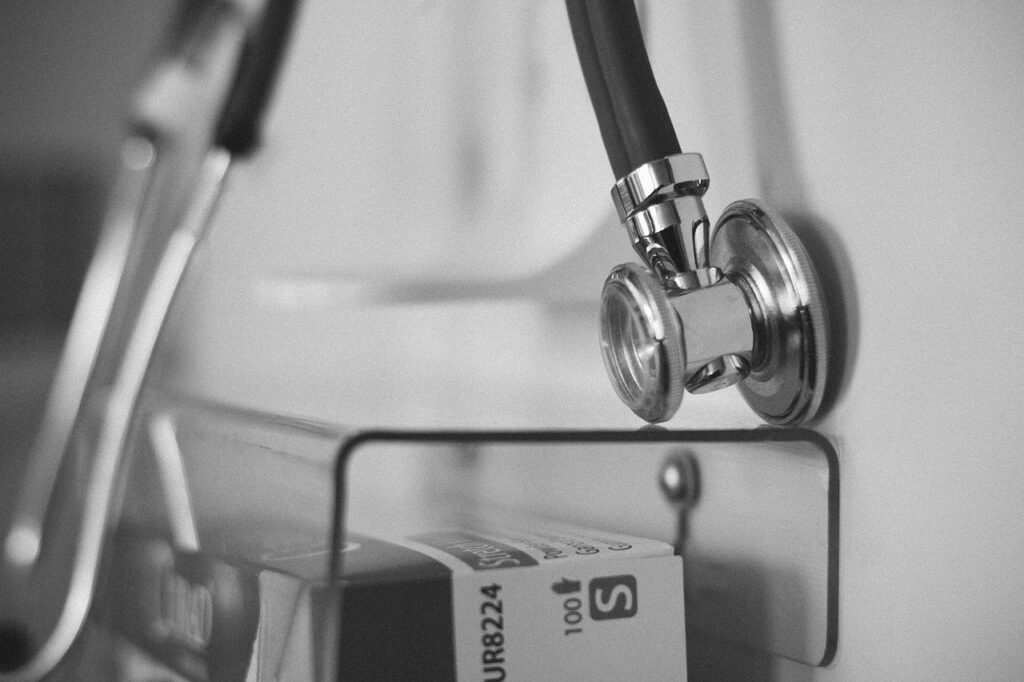What is Considered a Misdiagnosis and When is it Malpractice?
When mistakes like misdiagnosis are made in healthcare, the consequences are immense. There are over 700,000 deaths in hospitals every year, and medical misdiagnosis is one of the leading causes. These incidents lead to 371,000 deaths and 424,000 permanent disabilities every year, and those are just the confirmed cases.
What is considered a misdiagnosis, and when does a misdiagnosis become malpractice?
Defining Misdiagnosis in Legal Terms
Misdiagnosis is an umbrella term that encompasses many different types of mistakes that can be made when a physician or team of healthcare specialists are treating a patient. In the simplest terms, a medical misdiagnosis occurs when a physician makes a diagnostic error that results in a delayed misdiagnosis of a condition. It can also result in a person being diagnosed with the wrong condition, which also leads to delayed treatment. Some other cases of medical misdiagnosis can include the complete failure to diagnose a condition, related or unrelated diseases, or a subtype of the disease.
Regardless of the cause of the diagnostic error, misdiagnosis can lead to many negative outcomes for patients, including:
- Delayed treatment
- Worsening conditions
- Health complications that disrupt daily life
- Invasive medical procedures
- Pain and discomfort
- Decreased quality of life
- Wasted time, money, and other resources
- Emotional and psychological impacts
- Permanent damage or impairment
- Loss of life
Is Misdiagnosis Medical Malpractice?
While failure to diagnose and misdiagnosis are not necessarily surefire cases of medical malpractice, they are the basis for many medical malpractice lawsuits. In order for a case of misdiagnosis or failure to diagnose to be considered medical malpractice, it generally must lead to the worsening of a patient’s medical condition or other damages to their health, lifestyle, or financial situation. It must also be proven that the medical professionals you worked with were negligent, which caused the patient to suffer harm.
Medicine is a complex field, and physicians are not always expected to be perfect when treating a patient. However, there is a standard of medical care that must be met. Physicians must perform their job with a reasonable degree of attention, competence, and care. If they miss a diagnosis that any ordinary physician would have discovered, they can be held legally liable for the harm and costs suffered by the patient.
What Must be Proven in a Misdiagnosis Case
Cases involving medical misdiagnosis can be complex and highly technical, and medical malpractice attorneys are generally required to prove that:
- The physician owed you a duty of care: a patient-doctor relationship must exist between you and the physician(s) you are seeing. This means that the physician has an obligation to correctly diagnose you and treat you to the best of their ability.
- The physician did not meet the medical standards of care: The standard of care is defined as the level of skill, care, and treatment that a reasonably competent provider in the same field would have provided under similar circumstances. It must be shown that the physician(s) did not meet that level of care due to negligence or some other action.
- Harm or damage: it must be shown that you suffered some sort of harm or financial damage that is able to be compensated.
- Causation: finally, it must be shown that the actions or inaction of the physician is the cause or one of the causes of the damage you have suffered.
Besides harm to your health, there are many types of financial damage you can suffer as the result of a misdiagnosis. These can include:
- Medical bills and costs
- Lost wages
- The inability to continue working in the future
- Physical pain and suffering
- Emotional distress
- Loss of consortium: in cases of severe injury or wrongful death, your family may be entitled to compensation for the loss of companionship and support.
- Loss of quality of life
- Rehab costs
- Funeral and burial expenses
- Legal fees
What to Do if You’ve Suffered a Misdiagnosis
If you or a loved one has been harmed because of a misdiagnosis or failure to diagnose, you have recourse. Get in touch with our medical malpractice attorneys at Eichen Crutchlow Zaslow. Our attorneys are well-versed in helping victims with their medical malpractice cases. From building a case to gathering evidence and finding expert witnesses, we can help you get the compensation and justice you and your family deserve. Even if you’re uncertain that your misdiagnosis was the result of negligence, get in touch with us anyway. We will provide you with a free consultation and analysis of your case. Call 732-777-0100 or send us a message online today.

Eichen Crutchlow Zaslow, LLP has purposely remained small in size, because it is important to us that we get to know our clients and their needs. Larger NJ injury firms may churn out case after case, but that’s not how we operate. Partners Barry Eichen, William Crutchlow, and Daryl Zaslow have created a firm with the resources to handle complex litigation, and a team that takes your case personally.
Find out more about Eichen Crutchlow Zaslow, LLP

